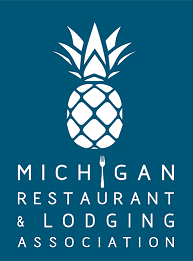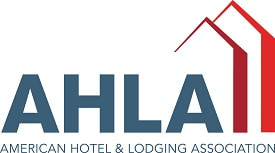Government Affairs: Autumn Issues Keep on Fall-ing
By: John McNamara, MRLA VP of Government Affairs

In August, Governor Gretchen Whitmer delivered her “What’s Next” speech and shared her vision for the state’s future. In the address, Whitmer called for 100% clean energy standard, a drug affordability board to monitor drug prices, paid family leave and state regulation for siting of solar and wind farms. In September, however, the Michigan Legislature returned from summer recess with a full fall agenda and limited time to achieve their own priorities as well as those outlined in the governor’s address.
What does this mean for Michigan restaurant and hotel operators? Many new ideas and bills from legislators that directly impact business operations are being presented in addition to accomplishing the governor’s priorities in quicker-than-usual pace. So far this year, we have seen a brand new legislature introducing and advancing laws quickly which makes the role of the Michigan Restaurant & Lodging Association (MRLA) representing the voice of our industry more crucial than ever.
For the first time in her tenure, Governor Whitmer has majorities in both the Michigan House and Senate and has not been shy about capitalizing on this opportunity. Individually, paid leave, prescription drug transparency and an energy overhaul would be considered a monumental lift and major accomplishment for one legislative session. Governor Whitmer has asked the legislature to consider all three and pass them in what is likely to be a shortened legislative session. This is in addition to each member of the Michigan House and Senate having their own individual priorities. In a nutshell, the potential threats to our industry have never been greater and stakes have never been higher to impeded progress on multiple legislative initiatives.
Through it all, the MRLA is committed to serving as the hospitality industry’s leading representative voice at the Capitol and keeping our industry informed. This session, the MRLA will closely track and take action in response to the following developments:
What does this mean for Michigan restaurant and hotel operators? Many new ideas and bills from legislators that directly impact business operations are being presented in addition to accomplishing the governor’s priorities in quicker-than-usual pace. So far this year, we have seen a brand new legislature introducing and advancing laws quickly which makes the role of the Michigan Restaurant & Lodging Association (MRLA) representing the voice of our industry more crucial than ever.
For the first time in her tenure, Governor Whitmer has majorities in both the Michigan House and Senate and has not been shy about capitalizing on this opportunity. Individually, paid leave, prescription drug transparency and an energy overhaul would be considered a monumental lift and major accomplishment for one legislative session. Governor Whitmer has asked the legislature to consider all three and pass them in what is likely to be a shortened legislative session. This is in addition to each member of the Michigan House and Senate having their own individual priorities. In a nutshell, the potential threats to our industry have never been greater and stakes have never been higher to impeded progress on multiple legislative initiatives.
Through it all, the MRLA is committed to serving as the hospitality industry’s leading representative voice at the Capitol and keeping our industry informed. This session, the MRLA will closely track and take action in response to the following developments:
|
Local Preemption |
Before adjourning for summer recess, both the House and Senate Committees on Labor heard testimony on House Bill 4237 sponsored by State Representative Joey Andrews (D-St. Joseph) and Senate Bill 171 sponsored by State Senator Sean McCann (D-Kalamazoo). If this bill is enacted, it would mean that Michigan’s more than 1,800 local units of government would be allowed to implement their own rules and regulations governing private employers’ relations with their employees. Rules and regulations that could include local governments setting their own minimum wage, time off and sick leave polices. If you are a multi-unit operator this could lead to separate labor polices in each municipality that you operate in. Which in turn would create inconsistency, confusion, and a bureaucratic red-tape nightmare.
|
County and City Excise Taxes on Lodging Businesses |
With a direct impact on hotels in specific municipalities, this bill would allow the Board of Commissioners (BOC) in a qualifying county to increase the excise tax from 5% to 10% on accommodations. A qualifying county would include one with a population of 785,000 or less people that also has a city of 35,000 or more people. Additionally, the MRLA expects legislation to be introduced that would allow for cities or townships with a population of 40,000 or more to create an ordinance levying up to a 2% hotel/motel excise tax. Across both bills, 52 counties, cities, or townships could be impacted by a tax increase.
|
Predictive Scheduling |
House Bill 4035 mandates that employers in the hospitality and retail sectors with 100 or more employees provide a schedule to employees 14 days in advance. As currently written, employees could decline shifts and be paid time and a half if asked to work shifts different than scheduled. At the same time, employers could decide to schedule less staff and not allow employees to make changes within two weeks of the scheduled shift. The MRLA stands firm that this is an unrealistic standard for an industry still suffering from a workforce shortage and whose greatest benefit is a flexible work schedule to accommodate staff.
|
Post Labor Day School Starts |
Currently, Michigan public schools are required to apply for and receive a waiver in order to start classes before Labor Day. House Bill 4671 would remove the waiver process, effectively allowing schools across Michigan to start school before Labor Day. The MRLA currently opposes House Bill 4671 unless amended so that schools returning to session in August can only hold classes Tuesday through Thursday.
|
Employee Misclassification Penalties |
If passed into law, House Bill 4390 would create one of the strictest standards for defining an independent contractor and impose rigorous penalties for employers that misclassify workers. Another bill in the package mandates that salary information for employees who are similarly situated be disclosed.
|
Plastic Bag Ban |
Currently in Michigan, local municipalities are not allowed to ban plastic shopping bags. However, State Senator Sue Shink (D-Northfield Township) has introduced legislation that repeals the current law and would allow local municipalities to ban plastic bags and similar containers. This would create a confusing patchwork of laws and regulation making operations harder for restaurants and hotels that provide Pure Michigan hospitality to guests across the state.
|
Paid Family Leave |
Earlier this year, Minnesota passed H.F. 2 that established mandatory paid family leave in Michigan. This act creates a paid family and medical leave insurance program funded by employers and employees through payroll deductions. Starting January 1, 2026, Minnesota employees will be able to take up to 20 weeks of paid family and medical leave per year. The MRLA expects that legislation will be introduced soon in Michigan that will mirror Minnesota’s paid leave model.
|
Short-term Rental Reform |
Over the last four years, the MRLA has prioritized a balanced solution to the issue of short-term rentals that protects property rights, ensures the integrity of neighborhoods, and fosters a level playing field for Michigan’s critical hospitality and tourism industry. The surge in short-term rentals in recent years, however, is driven largely by outstate corporations purchasing multiple residential properties and essentially operating them as illegal hotels, creating an affordable housing crisis. Short-term rentals are not held to the standards of hotels despite operating as such. Whether it is strict fire suppression standards, accessibility issues for disabled guests or a litany of other general health standards, short-term rentals subject their guest to risks that hotels do not. Further, short-term rentals are not required to adhere to all local, state and federal taxes and don’t contribute to the tourism community that is driving the consumer demand for such reservations. The MRLA is advocating to create industry-wide tax parity and a registry of short term rentals while still protecting the integrity and uniqueness of each Michigan community.
Each of these initiatives poses specific threats and challenges to our state’s restaurants and hotels, and the response of the MRLA will likewise be specific, well-informed, and directly tailored to the needs of the hospitality industry. This fall legislative session, the MRLA will continue in its strategy to oppose most of these initiatives, to strive for fair compromises on short-term rental reform, and to advocate at every opportunity for decisions by elected officials that break down hurdles and support the wellbeing of all hotels, restaurants, and hospitality businesses in Michigan.
For any questions, contact the MRLA’s VP of Government Affairs John McNamara at [email protected].
For any questions, contact the MRLA’s VP of Government Affairs John McNamara at [email protected].





